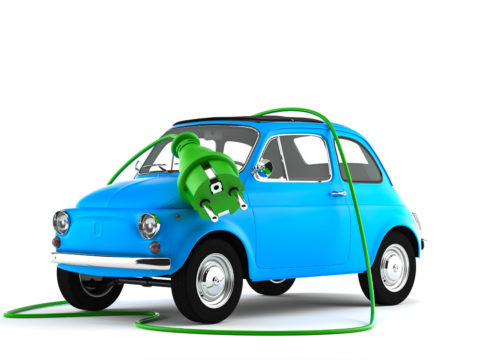SUMMARY
NITI Aayog CEO has been given a charge to lead the mission
The mission will develop a blueprint for Phased Manufacturing Programme
The PMP will localise the production of EVs its components within the country
Inc42 Daily Brief
Stay Ahead With Daily News & Analysis on India’s Tech & Startup Economy
The Centre formed the National Mission on Transformative Mobility and Battery Storage on Thursday (March 7)with a charge to finalise the framework for a Phased Manufacturing Program (PMP), aimed at localising the production of electric vehicles (EV) and its components within the country.
The announcement comes less than a week after the Indian government launched the FAME II scheme to boost the adoption of clean energy vehicles. FAME II focuses on the increasing the number of electric vehicles in public transportation, and also encourages local manufacturing of high-quality EV products.
The CEO of government think-tank NITI Aayog, Amitabh Kant, has been appointed to lead the Inter-Ministerial Steering Committee of the mission who will recommend and drive the strategies for transformative mobility in India. The committee will comprise secretaries from the Ministry of Road Transport and Highways, Ministry of Power, Ministry of New and Renewable Energy, Department of Science and Technology, Department of Heavy Industry, Department for Promotion of Industry and Internal Trade, and director general from Bureau of Industrial Standards.
The creation of a PMP will be valid for five years until 2024 to localise production across the entire electric vehicles value chain, such as formulating strategies on manufacturing EVs, its specification and standards, fiscal incentives, overall demand creation and projections, regulatory framework, and research and development.
“The mission will facilitate cooperative federalism, extensive stakeholder and inter-ministerial consultations and implement end-to-end policy framework for transforming the mobility landscape,” the cabinet in a statement said.
Initially, the mission will set up a phased roadmap to implement battery manufacturing at Giga-scale with an initial focus on a large-scale module and pack assembly plants by 2019-20, followed by integrated cell manufacturing by 2021-22.
Kant tweeted: “Cabinet approving National Mission on Transformative Mobility & Battery Storage will ensure @makeinindia innovation for safe, adequate, holistic Infra for mobility. India offers unparalleled speed, scale & size for multi-modal, sustainable, intelligent ecosystems.”
Meanwhile, the decision to link battery capacity to subsidy has been lauded by the country’s EV startups, as the move that will ensure the influx of high-performance, quality vehicles.
According to Bengaluru-based EV startup Ather Energy’s chief business officer, Ravneet Phokela, the regulation that mandates players to provide at least three years of comprehensive warranty will encourage serious players to invest in the entire component cycle.
“This, combined with emphasis on local sourcing, is bound to aid EV automakers to invest in building a sustainable production ecosystem. The support for domestic manufacturing is much needed and will help Indian automakers build vehicles locally,” Phokela said.
The startup is also of the view that import duty from 5% to 15% on Li-ion batteries at the end of 2022 will drive OEMs to fast-track their investments in the infrastructure now.
Note: We at Inc42 take our ethics very seriously. More information about it can be found here.


